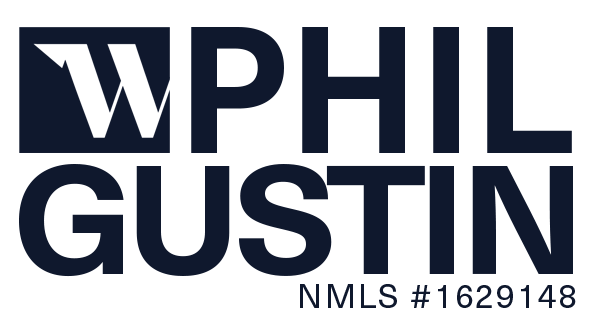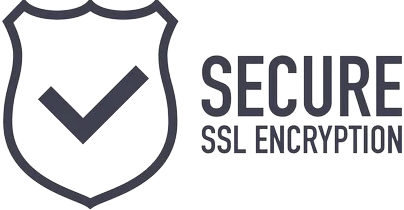Non-QM Loans in Boise, ID: Let's talk!

Understanding Non-QM Loans Boise ID: A Guide for Borrowers
As the housing market in Boise, ID, continues to grow, many homebuyers and investors are seeking alternative financing solutions that go beyond traditional mortgage options. Non-QM (Non-Qualified Mortgage) loans, also known as non qualified mortgages, offer a flexible path to homeownership or investment for borrowers who don’t meet the strict requirements of conventional loans. Whether you’re self-employed, have unique income sources, or are an investor, Non-QM loans might be the right solution for you.
As a mortgage broker specializing in Non-QM loans, I’m here to help you understand how these loans work and how they can help you achieve your real estate goals in Boise.
What is a Non-QM Loan?
Non-QM loans are designed for borrowers who don’t fit the standard criteria for a Qualified Mortgage (QM), which typically includes meeting debt-to-income ratios, verified income, and employment documentation required for a qualified loan. Non-QM loans offer more flexibility in underwriting standards, allowing lenders to approve borrowers with more unique financial situations.
Who Can Benefit from a Non-QM Loan?
Non-QM loans are ideal for a variety of borrowers, including:
- Self-Employed Individuals: If you’re self-employed, proving your income can be challenging using traditional tax returns and W-2 forms. Non-QM loans allow you to qualify using alternative documentation, such as bank statements, asset-based income, or business revenue.
- Real Estate Investors: Investors looking to purchase rental properties or flip homes can benefit from Non-QM loans, which often allow for the use of projected rental income or the property’s potential value rather than just the borrower’s personal income.
- Borrowers with Credit Challenges: If you have a lower credit score, past bankruptcy, or other credit challenges, Non-QM loans provide a solution that can accommodate these situations, offering access to financing when traditional lenders may say no. A minimum credit score of 620 is typically necessary for Non-QM loans, along with stable income and a consistent employment history.
- Borrowers with Unconventional Income: For individuals who receive income from multiple sources—such as freelancers, contractors, or seasonal workers—a Non-QM loan can offer more flexibility in how income is calculated and verified.

Benefits of Non-QM Loans
Non-QM loans come with several benefits that make them a popular option for certain borrowers:
- Flexible Income Verification: Non-QM lenders often use alternative income verification methods, such as bank statements, profit and loss statements, or asset-based lending. This flexibility is particularly helpful for self-employed borrowers or those with non-traditional income streams.
- Higher Loan Amounts: Non-QM loans typically allow for larger loan amounts than conventional loans, which is particularly beneficial for borrowers looking to purchase high-value properties or invest in real estate in Boise’s competitive market.
- Credit Flexibility: While traditional lenders have strict credit score requirements, Non-QM loans often have more lenient credit standards, providing opportunities for those with lower credit scores or past financial issues to still qualify for financing. In contrast, qualified mortgages have stricter requirements set by the Consumer Financial Protection Bureau (CFPB), which can disadvantage borrowers with nonstandard financial situations.
- Customizable Loan Terms: Non-QM loans can offer more flexibility when it comes to terms, such as interest-only payment options or adjustable-rate mortgages (ARMs), allowing borrowers to choose a loan structure that fits their financial situation and goals.
Types of Non-QM Loans
Non-QM loans come in various forms, each designed to cater to the unique financial situations of different borrowers. Understanding the types of Non-QM loans available can help you choose the one that best fits your needs. Here are some common types:
- Interest-Only Loans: These loans allow borrowers to make interest-only payments for a specified period, typically between 5 to 10 years. This can be particularly beneficial for those looking to minimize their monthly payments initially.
- Bank Statement Loans: Ideal for self-employed borrowers, these loans use bank statements instead of traditional income documentation to verify income.
- Asset-Based Loans: These loans consider a borrower’s assets, such as investments or retirement accounts, as a basis for qualification.
- Jumbo Loans: For those looking to purchase high-value properties, jumbo loans offer higher loan amounts than conventional loans.
Each type of Non-QM loan offers unique benefits and can be tailored to meet the specific needs of borrowers who may not qualify for traditional mortgages.
Interest-Only Loans
Interest-only loans are a popular type of Non-QM loan that allows borrowers to make interest-only payments for a set period, usually ranging from 5 to 10 years. During this interest-only period, the borrower’s monthly payment is significantly lower because they are not paying down the principal loan balance. This can be particularly advantageous for borrowers who need to qualify for a larger loan amount or who want to keep their monthly payments as low as possible initially.
However, it’s important to understand that once the interest-only period ends, the borrower must start making payments on both the principal and the interest. This can lead to a substantial increase in the monthly payment. Additionally, because the principal loan balance remains unchanged during the interest-only period, the borrower is not building equity in the property. This makes interest-only loans a bit riskier, especially if property values do not increase as expected.
Interest-only loans can be a strategic choice for certain borrowers, but it’s crucial to plan for the higher payments that will come later and to consider the potential risks involved.

Non-QM Loans in Boise, ID: A Growing Market
Boise’s real estate market has been booming, with strong growth in both residential and investment properties. As home prices rise and competition increases, many buyers are looking for alternative financing solutions that give them a competitive edge. Non-QM loans offer a way for Boise residents—especially those with non-traditional financial profiles—to access financing in a hot market. These loans do not meet the Consumer Financial Protection Bureau's requirements for qualified mortgages, providing increased flexibility but also potential risks.
With its growing economy, vibrant tech industry, and stunning outdoor surroundings, Boise is attracting homebuyers and investors alike. If you’re looking to purchase a home or invest in Boise’s real estate market, a Non-QM loan can help you secure the financing you need, even if you don’t meet the requirements for a conventional loan.
How Do Non-QM Mortgages Work?
Non-QM mortgages operate by utilizing alternative income verification methods, making it easier for a broader range of borrowers to qualify for a mortgage. Unlike traditional mortgages that rely heavily on W-2s and tax returns, Non-QM loans can use bank statements, asset qualifiers, or other forms of income documentation to verify a borrower’s financial stability.
The process of obtaining a Non-QM loan is similar to that of a traditional mortgage but with different requirements and paperwork. Borrowers will still need to provide financial documentation, but this can include bank statements or profit and loss statements instead of just tax returns. Non-QM lenders also offer more flexible loan terms, such as longer loan durations or interest-only payments, which can help borrowers manage their monthly payments more effectively.
Overall, Non-QM mortgages provide a viable alternative for those who may not meet the stringent criteria of traditional mortgages, offering more flexibility in terms of income verification and loan structuring.
Income Verification Methods
Non-QM lenders employ various alternative income verification methods to help borrowers qualify for a mortgage. These methods are particularly beneficial for self-employed borrowers or those with non-traditional income sources. Here are some common income verification methods used in Non-QM lending:
- Bank Statement Loans: This method involves using bank statements to verify a borrower’s income. Typically, borrowers will need to provide 12 to 24 months of bank statements to demonstrate their income. This is especially useful for self-employed borrowers who may not have traditional income documentation.
- Asset Qualifier Program: In this method, a borrower’s assets, such as investments or retirement accounts, are used to qualify for a mortgage. This can be an excellent option for borrowers with substantial assets but irregular income.
- One-Year Tax Return Program: This method allows borrowers to qualify for a mortgage using just one year of tax returns. This can be beneficial for those who have had a particularly good financial year and want to use that income to qualify for a loan.
These alternative income verification methods provide greater flexibility for borrowers with unique financial situations. However, it’s important to note that they may also come with higher down payment requirements or interest rates, reflecting the increased risk to the lender.

How to Qualify for a Non-QM Loan
Qualifying for a Non-QM loan typically involves a different set of criteria than traditional loans. Here’s what you can expect during the qualification process:
- Alternative Documentation: Instead of relying on W-2s or tax returns, you’ll provide alternative documentation, such as bank statements, to prove your income. Non qualified mortgages allow for alternative income verification methods, catering to a broader range of financial profiles, including self-employed individuals and retirees who may lack conventional documentation. Lenders will look at your overall financial picture, including your assets, business revenue, and cash flow.
- Flexible Credit Requirements: While credit scores still matter, Non-QM lenders often have more lenient credit requirements, meaning you may still qualify even with a lower score or past financial challenges.
- Debt-to-Income Ratios: Non-QM loans often allow for higher debt-to-income (DTI) ratios, meaning you can qualify even if a significant portion of your income is already going toward debt payments.
- Down Payment: Non-QM loans typically require a larger down payment compared to conventional loans—usually around 20% or more. However, this requirement varies depending on the specific loan program and your financial profile.
Is a Non-QM Loan Right for You?
Non-QM loans are not for everyone, but they can be a powerful tool for borrowers who don’t meet the strict requirements of traditional financing. Compared to qualified mortgages, which adhere to the stringent standards set by the Consumer Financial Protection Bureau (CFPB), Non-QM loans offer more flexibility and access for those with nonstandard financial situations. If you’re self-employed, have unique income sources, or are looking to invest in real estate in Boise, a Non-QM loan might be the right choice.
However, it’s important to work with a knowledgeable mortgage professional who understands the nuances of Non-QM lending. I can help you navigate the process, identify the best loan options for your situation, and guide you through the necessary steps to secure financing.

Conclusion
Boise’s thriving real estate market provides incredible opportunities for both homebuyers and investors, and Non-QM loans are an excellent option for those who don’t fit the conventional mortgage mold. Whether you're self-employed, an investor, or have non-traditional income, Non-QM loans offer flexibility, access, and opportunity in a competitive housing market.
If you're considering a Non-QM loan in Boise, ID, or have questions about whether it’s the right fit for you, feel free to reach out. I’m here to help you find the financing solution that meets your unique needs and helps you achieve your real estate goals.








